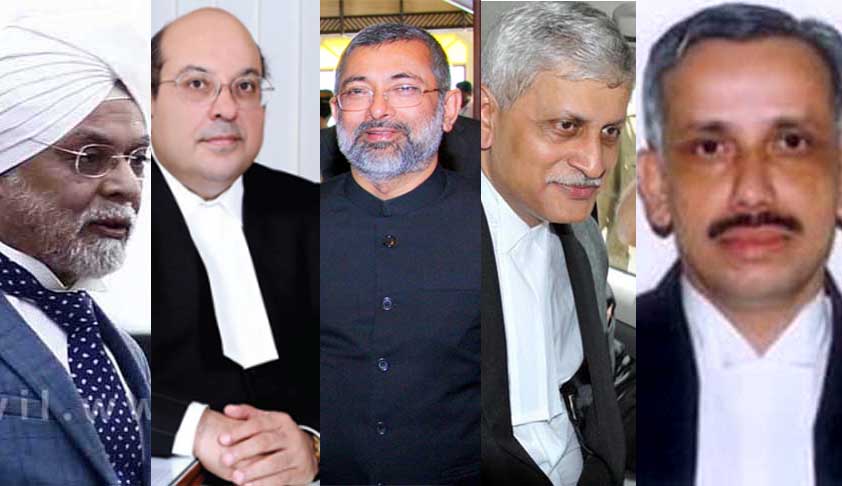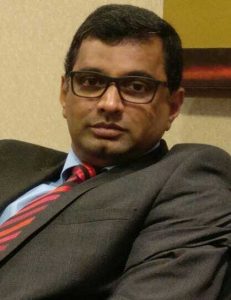Personal Laws And Supreme Indecision
A.J. JAWAD
9 Jun 2017 3:35 PM IST

In what appears to be a very impulsive decision, the Hon’ble Supreme Court decided to come to the rescue of Muslim women suffering under the yoke of triple talaq when it was brought to the “notice” of the Court about their suffering. The case that was being argued before the Supreme Court, when this decision was taken, had nothing to do with Muslim Personal Law. It was a matter pertaining to Hindu Law and a Hindu woman’s residual right to ancestral property. The Supreme Court proceeded to register a suo motu PIL “In Re: Muslim women’s Quest for Equality” on October 15th 2016 and subsequently constituted a Constitution Bench to decide the issue.
Once the Supreme Court decided to suo motu take up the triple talaq issue, everyone (and ofcourse the media) went into a tizzy. On the one hand, the All India Muslim Personal Law Board and its like-minded ilk came out in full strength to “protect” their God-given right to throw out their women on the streets with three simple words and, on the other hand, the BJP-led government (whose ideological moorings and past record cast a serious doubt on its commitment to gender justice) decided to take up the cause of the Muslim women and defend their honour and their rights. Amid these two polarizing forces (or are they all on the same side ultimately on the issue of gender equality?), groups and organisations working genuinely for women’s rights jumped into the fray with the hope that the Supreme Court would take up the larger issue of the primacy of the Constitution over the personal laws, customs and practices. This, they hoped, would put an end to pernicious practices like polygamy, Nikah halala and so on. In fact, this was the agenda that the Supreme Court had framed for itself when it took up the suo motu PIL.
In this context, it is pertinent to look at Article 13 of the Constitution, which states as follows:
- Laws inconsistent with or in derogation of the fundamental rights
(1) All laws in force in the territory of India immediately before the commencement of this Constitution, in so far as they are inconsistent with the provisions of this Part, shall, to the extent of such inconsistency, be void;
(2) The State shall not make any law which takes away or abridges the rights conferred by this Part and any law made in contravention of this clause shall, to the extent of the contravention, be void;
(3) In this article, unless the context otherwise requires law includes any Ordinance, order, bye law, rule, regulation, notification, custom or usages having in the territory of India the force of law; laws in force includes laws passed or made by Legislature or other competent authority in the territory of India before the commencement of this Constitution and not previously repealed, notwithstanding that any such law or any part thereof may not be then in operation either at all or in particular areas;
(4) Nothing in this article shall apply to any amendment of this Constitution made under Article 368 Right of Equality.
In other words, Article 13 gives the High Courts and the Supreme Court the power to review all pre-constitutional enactments to check whether there is any violation of the fundamental rights guaranteed to the citizens of India and to that extent declare such enactments as ineffective. In Narasu Appa Malli’s case, the Bombay High Court held in 1951 that personal laws would not be affected by the provisions of Article 13 as these laws are not “laws in force” as contemplated under Article 13. This decision has continued unchanged, obviously due to political compulsions to which, oftentimes, the courts fall prey to. The Supreme Court initially dithered on the issue and finally upheld the Bombay High Court’s judgment in the case of Ahmedabad Women’s Action Group vs. Union of India in 1997. Thus, the Shariath Application Act of 1939, which simply declared that the Muslims of India would be governed by the Shariath in all matters relating to marriage, divorce, inheritance, guardianship and maintenance and so on, continued unchallenged. The Act does not define the Shariath. Taking shelter under the Narasu Appa Malli decision, pernicious practices like triple talaq, Nikah halala and polygamy have continued unchecked. It might ofcourse be argued that instances of such practices are rare, but the fact that such practices exist does not behoove a constitutional democracy guaranteeing equality to all its citizens. Therefore, when the Supreme Court decided suo motu to take upon itself the task of re-looking into these practices, it gave some hope that the exclusion of personal laws from the ambit of Article 13 will also be relooked.
However, all hopes have been dashed to the ground when the Constitution Bench of the Supreme Court, constituted to go into these issues, declared that it will not go into the issue of Nikah halala or polygamy. After taking the rare step of registering a suo motu PIL with a lot of hype and fanfare, two major practices that humiliate the Muslim woman most i.e. Polygamy and Halala, have been severed from the justiciable issues that were to be adjudicated, and these basic issues have been put on the back burner to be decided on another day. The surge of anxiety and concern expressed by the Supreme Court towards the hapless Muslim woman in October 2016 seems to have waned in May of 2017 when the matter was before the court for adjudication. By necessary implication, it means that the applicability of Article 13 to personal laws would also fall outside the purview of the Court’s consideration. It begs the question – for what purpose was the constitution bench consisting of five judges drawn from the five communities of India (without, ofcourse, the only woman judge who is now adorning the highest court of India) constituted? Just to decide whether triple talaq is valid or not under the religious laws? But this issue has already been finally decided by the Supreme Court in Shamim Ara’s case and several other cases before that. In A.S. Parvin Akhthar vs. Union of India, the Madras High Court in 2002 dismissed the challenge to section 2 of the Shariath Application Act in so far as it makes triple talaq applicable to Muslims of India. The Division Bench held in this case that triple talaq has already been held invalid by the Supreme Court in Shamim Ara’s case (2002) and that any reform in the personal law would fall within the legislative domain.
The Supreme Court would be abdicating its constitutional responsibility if it confines itself only to the question whether triple talaq is valid under the religious laws or not and if it fails to expand the ambit of Article 13 to include personal laws. Having grandly declared that the right to life under Article 21 means right to a life of dignity, the Supreme Court cannot now say that Articles 14 and 21 do not apply to the family, which is the smallest unit of society above the individual, and thus create a class of citizens to whom the constitutional guarantee of equality before the law and equal protection of the laws would not reach. There is a pressing need today to revisit the decision in Narasu Appa Malli case.
Definitions of gender rights and obligations have undergone a sea change with the advancement of society and redefinition of the roles of men and women in family life. The conventional role of a woman as a home-maker and man as the bread-winner are no longer a rigid norm. With education and increasing employment opportunities, women are no longer dependent on men for provision or for protection. In this scenario, the rigidity that personal laws bring to the domestic equation is anachronistic. Even the existing laws applicable to Hindus and Christians leave much to be desired in addressing the changing social paradigm. What is needed today is a pragmatic modern statute, based on the principles of equality and justice, governing marriage, divorce, maintenance/alimony and custody of children, that would be applicable to all communities. However, this can be assured only by a truly secular state.
True secularism is when the state ensures equality to all its citizens, regardless of their religious or denominational beliefs, gender or sexual orientation. But today, looking at events happening around the country, the very concept of secularism is under serious challenge. With a government in power, whose commitment to gender equality, secularism and constitutional guarantees hangs by a very thin thread, one really wonders what kind of gender justice can be assured and whether such legislation would amount to jumping from the frying pan into the fire. Sadly, regardless of what the Supreme Court decides, the fate of not just Muslim women, but of all the Indian women, hangs in a balance.
 AJ Jawad is a practicing Lawyer and Mediator at Madras High Court.
AJ Jawad is a practicing Lawyer and Mediator at Madras High Court.
The opinions expressed in this article are the personal opinions of the authors. The facts and opinions appearing in the article do not reflect the views of LiveLaw and LiveLaw does not assume any responsibility or liability for the same.


